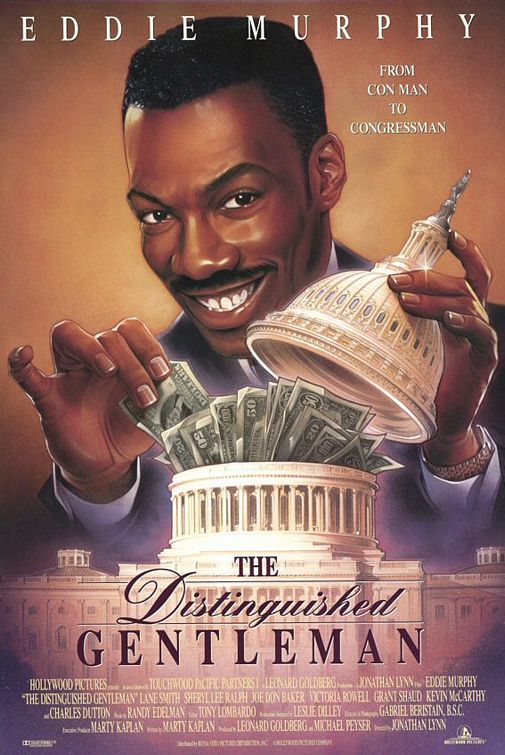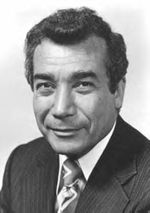Major Latino Organizations Speak Out:
The WAR AGAINST KEN BURNS / PBS’
“THE WAR” IS NOT OVER
Why the Latino Community Can’t Let This Matter Rest
The Latino “war” against Ken Burns’ upcoming documentary, “The War,” to be aired on PBS is not over. Despite recent press statements, key Latino organizations and leaders across the country today publicly announced that the issue is far from resolved and that they will continue pressing for a respectful resolution. Latino organizations and leaders called on Ken Burns and Florentine Pictures to meet with a representative cross-section of the national Latino leadership to explain in detail the changes they have made to the film, how they plan to include the Latino experience in their future projects and how they plan to include Latinos on the Florentine team. They also call on PBS President and CEO Paula Kerger, as well as WETA-TV’s CEO and president, Sharon Percy Rockefeller, to explain the measures that will be taken to assure that such a gross exclusion of the Latino community does not occur again in their current and future programming, and how they will supplement The War with other programming and activities to include the Latino experience, in particular with the educational programming.
At the urging of a corporate sponsor, Burns met with two Latino groups in early May and reiterated that he would include interviews with some Latino veterans in the 14.5 hour documentary, without offering many details. This was a commitment that he and PBS had already made publicly. Citing the results of this meeting, Burns and PBS officials at both the national and local levels have declared the issue closed. “Ken Burns cannot choose to make a secret deal with only two of the many Latino groups that were involved in this issue and in discussion with him and PBS, and then claim that the matter is resolved,” explains Marta García, co-chair of the New York Chapter of the National Hispanic Media Coalition and one of the founders of Defend the Honor, a Latino grassroots mobilization that first raised the alarm about Latino exclusion from this PBS documentary at the beginning of this year. “He must bring closure to this issue by paying the Latino leadership of this country the respect, respeto, of meeting with us to explain himself and his future relationship to the Latino community.”
Some progress had been made on the issue over the past several months in that Burns has added interviews with two Mexican American veterans and one Native American to the 14 hour and 28 minute documentary. “But make no mistake,” said Iván Román, executive director of the National Association of Hispanic Journalists, “we will withhold judgment on how meaningful that additional material is – whether it truly speaks to the Latino experience and whether it is reflected in the companion book and educational material.” In subsequent statements to the press, Burns has been dismissive of the arguments that the inclusion of Latinos is about historical accuracy rather than political correctness.
“It is unfortunate that Ken Burns continues to see this issue as one of politics and rhetoric that he must rise above,” said Dr. Maggie Rivas-Rodríguez, the University of Texas journalism professor who co-chairs the Defend the Honor Campaign. “It has nothing to do with politics and everything to do with historical accuracy andinclusion.” Rosa Rosales, national president of LULAC, said that it was crucial for the Latino
organizations to publicly challenge statements in the press by Burns and PBS that the issue had been resolved. “As Ken Burns travels across the country as part of the $10 million promotional effort by PBS, he still characterizes this as a terrible misunderstanding,” Rosales said. “It’s no misunderstanding. We understand perfectly that he only added the new interviews under pressure and, right now, it looks like he’s not very proud of that new material.”
Another sticking point are the discrepancies between the National Endowment for the Humanities (NEH) grant proposal that provided federal funding for the film, and what he and PBS have said in recent months. For instance, Burns has said repeatedly in news interviews that in the more than 6 years of production, “no Latinos came forward” to be interviewed about their WWII experiences. But he apparently excluded Latinos from the beginning: in the NEH grant proposal submitted in 2004, Burns and Florentine Films said that the film “will celebrate American diversity” and that
it will be about the “diversity of wartime America . . . African-American, Japanese American and white.” “This is certainly very different from the way he discusses his film today in defending himself against Latino criticisms,” observes Jess Quintero, president of the Hispanic War Veterans of America. That documentary will shape how Americans view WWII, and if short shrift is given to the Latino contributions, there will be a reinforcement of the widespread ignoranceof the Latino contribution to the building of the U.S. “Ken Burns and PBS are playing recklessly with our history, both as Latinos and Americans,” observes Gus Chavez,one of the co-chairs of the Defend the Honor. He concludes, “This is something every
American should be upset about.”
“We are very uncomfortable with taking Burns and PBS’ word that they have addressed the Latino community’s concerns before actually seeing the product,” Armando Rendon of Defend the Honor Campaign of Northern California adds. “The anger in the grassroots Latino community continues unabated by the manner in which he and PBS have handled this matter.”-30-
Preliminary signatories to this statement include the following, with additional signatures to be added through Sept. 22, 2007.
Organizations:
Afro-Latino Project, Queens College (CUNY), Flushing, NY
APITO Centro Cultural de Puerto Rico (ACCPR), San Juan, Puerto Rico
Defend the Honor
Latino Literacy Now, Los Angeles
League of United Latin America Citizens (LULAC)
Lic. Rudy L. Ramos Civil Rights Chapter of the American GI Forum, San Antonio, Texas
National Association of Hispanic Journalists (NAHJ), Washington, DC
National Association of Latino Independent Producers (NALIP), Los Angeles, CA
National Hispanic Media Coalition (NHMC), Los Angeles, CA
National Institute for Latino Policy (NiLP), New York, NY
National Latino Council on Alcohol and Tobacco Prevention (LCAT), New York, NY & Wash., DC
Individuals (affiliations for identification purposes only):
Vicente “Panama” Alba, New York, NY
Frances Aparicio, Ph.D., Professor, Latin American and Latino Studies, University
of Illinois at Chicago
Luis Aponte-Parés, Boston, MA
Louise Bonanova, Civil Rights Investigator (Retired), Office for Civil Rights, United
States Department of Education, San Francisco, CA
María Cabán
Grissele Camacho, Esq.
Ed (Gato) Castillo-Rubio, Commander, Viet Nam Veterans of Foreign Wars (VFW) Post
9305 of Imperial County
María Elena Cepeda, Ph.D., Assistant Professor, Latina/o Studies, Williams College,
Williamstown, MA
Evelyn Collazo, New York, NY
Edgar De Jesus, AFSMCE East Region Area Organizing Director, and National Bronx
Member, Labor Council for Latin American Advancement (LACLA)
Minerva Delgado, Bronx, NY
Dra. Rosalina Diaz, Associate Professor of Education, Medger Evers College (CUNY), Brooklyn, NY
Martin Espada, Professor, University of Massachusetts, Amherst
Jaime Estades, Brooklyn, NY
Myra Y. Estepa, Brooklyn, NY
Dolores M. Fernández, Ph.D., President, Eugenio Maria de Hostos Community College
(CUNY), Bronx, NY
Ricardo R. Fernandez, Ph.D., President, Herbert H. Lehman College (CUNY), Bronx, NY
Juan Flores, Ph.D., Visiting Professor of Social and Cultural Analysis, New York University, New York, NY
Cynthia Garcia Coll, Ph.D., Charles Pitt Robinson and John Palmer Barstow Professor
Professor of Education, Psychology & Pediatrics, Brown University, Providence, RI
Jessica Gonzalez-Rojas, Queens, NY
Gabriel Haslip-Viera, Ph.D., Chair, Department of Sociology, City College of New York, City University of New York, New York, NY
Hilda Hernández-Gravelle, MSW, Ed.D.
Tanya K. Hernandez, Professor of Law and Justice, Frederick W. Hall Scholar, Rutgers University School of Law, Newark, NJ
James Jennings, Ph.D., Professor, Tuft University, Boston, MA
Miriam Jiménez Román, Afro-Latino Forum, New York University, New York, NY
Francisco J. Gonzalez, Cottage Grove, MN
Aldo Lauria Santiago, Ph.D., Rutgers University
Raul Madrid, Ph.D., Department of Political Science, University of Texas at Austin
Miguel “Mickey” Melendez, New York, NY
Carlos Molina, Ph.D., New York, NY
Edwin Karli Padilla, Associate Professor of Spanish, University of Houston-Downtown
Franklyn Perez, Esq., Hostos Community College, Bronx, NY
Luis O. Reyes, Ph.D., New York, NY
Eugene Rivera, Clinical Coordinator, Hill Health Center, Middletown, CT
Clara E. Rodriguez, Ph.D., Bronx, NY
Luz Rodriguez, New York, NY
Carlos Rodriguez-Fraticelli, Ph.D., University of Puerto Rico, Rio Piedras
Placido Salazar, USAF Retired Vietnam Veteran, State Veterans’ Affairs, Officer
of The American GI Forum of Texas, San Anotnio
Carlos Sanabria, Ph.D., Coordinator of Latin American and Caribbean Studies, Eugenio
Maria de Hostos Community College, City University of New York, Bronx, NY
Izzy Sanabria, publisher, Latin NY Magazine; Salsamagazine.com
Dr. José Ramon Sánchez, Chair, Department of Urban Studies, Long Island University, Brooklyn, NY
Nelson Sierra, Albany, NY
Hector Soto, Esq., La Resurreccion UMC Social Justice Committee, Bronx, NY
Candida Tapia
Donato Tapia, JD, San Francisco, CA
Hon. Esteban Torres, former U.S. Congressman, California
Gloria Tristani, former Commissioner, Federal Communications Commission (FCC)
Luis Urrieta, Jr., Ed.D., Department of Curriculum & Instruction, University of Texas at Austin
Richard Valencia, Ed.D., Department of Educational Psychology, University of Texas at Austin
Angela Valenzuela, Ed.D., Department of. Curriculum and Instruction and Educational Administration, University of Texas at Austin
Armando Vazquez-Ramos, Ph.D., Chicano & Latino Studies Department, California State University, Long Beach
Emilio Zamora, Ph.D., Department of History, University of Texas at Austin


